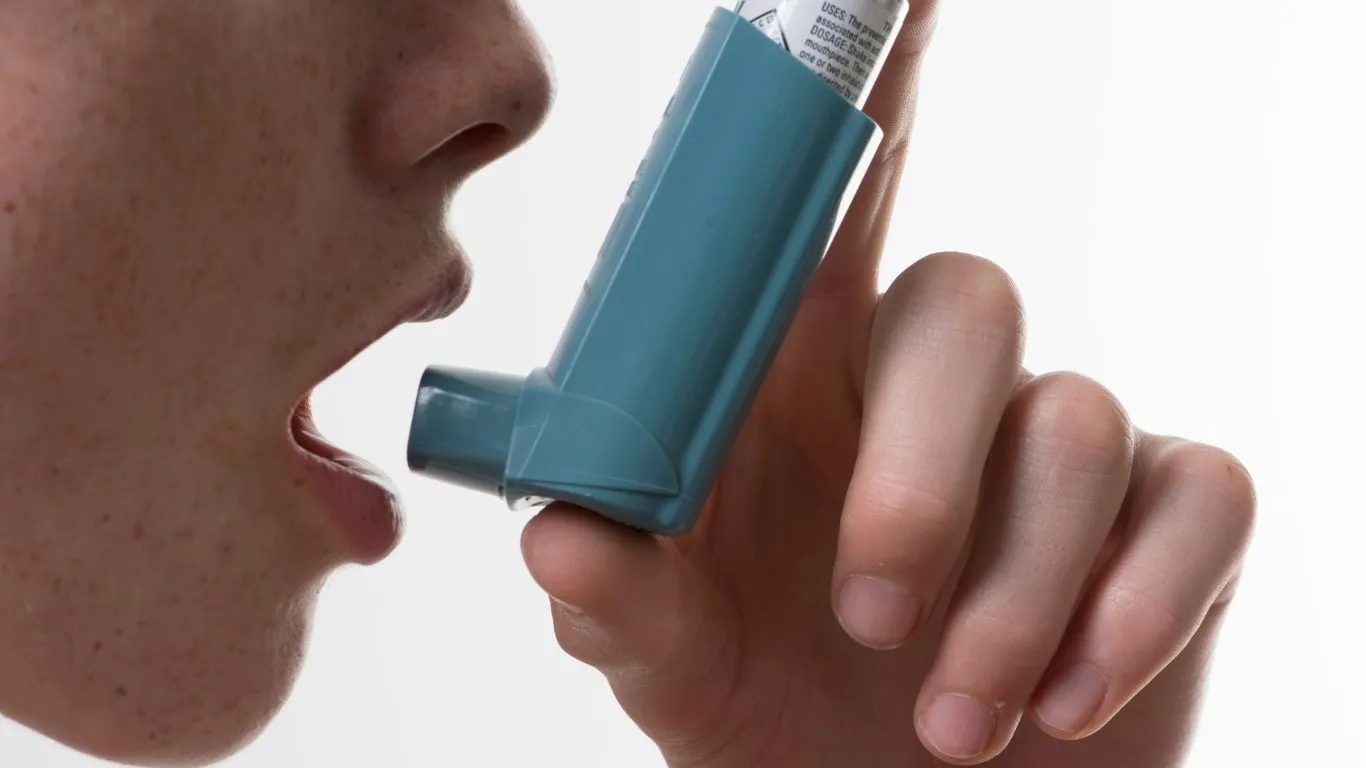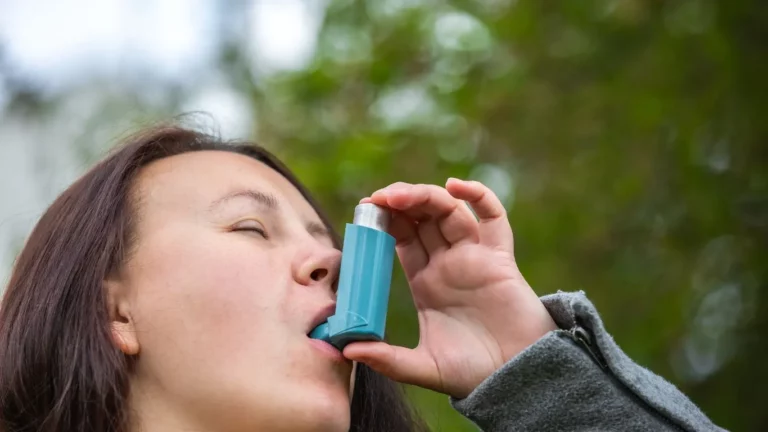When Asthma Requires Hospitalization – What You Need to Know
Wondering when asthma requires hospitalization? It’s not always easy to tell, but we’ve got all the info you need to understand when a hospital visit might be necessary.
Asthma can sometimes be a manageable condition, but when things take a turn for the worse, hospitalization may become necessary. It’s not something you want to deal with, but understanding the reasons why it might happen, how to handle it, and what to expect can make a huge difference. Let’s dive into everything you should know about asthma and why hospitalization may be required. 
Why Does Asthma Sometimes Lead to Hospitalization?
If you or someone you care about has asthma, you’re probably familiar with the usual symptoms like coughing, wheezing, shortness of breath, and chest tightness. For most people, asthma attacks are manageable with medication like inhalers. But sometimes, asthma attacks can escalate, becoming severe enough to require a visit to the hospital. The severity depends on a few things: how well-controlled your asthma is, how quickly the symptoms come on, and whether there are any complications like infections.
Severe Asthma Attack
This is the main reason people with asthma end up in the hospital. When an asthma attack is severe, even medications might not work as they should, and the airways become so narrowed that breathing becomes extremely difficult. It can feel like trying to breathe through a straw, which is terrifying and exhausting. A severe attack requires immediate attention in the hospital, often with the help of oxygen therapy or stronger medications delivered via a nebulizer.
Status Asthmaticus
This is a life-threatening condition where the asthma attack doesn’t respond to standard treatments and keeps getting worse. It’s rare, but when it happens, it’s an emergency situation that requires hospitalization to manage the symptoms effectively. 
What Happens When You’re Hospitalized for Asthma?
So, what should you expect if you end up in the hospital for an asthma attack? Here’s a general idea of what happens:
Emergency Assessment and Stabilization
The first thing that happens when you arrive at the hospital is that doctors will work to stabilize your breathing. This may involve giving you oxygen to help you breathe, as well as medications to reduce the inflammation in your airways. You might be given a nebulizer treatment, which turns liquid medication into a fine mist that you inhale, helping to open up your airways. In some cases, oral steroids might be used to bring down the inflammation.
Monitoring
You’ll be closely monitored, often with pulse oximeters (to check your oxygen levels) and peak flow meters (to see how well you’re breathing). If your symptoms are severe, you might be put on a ventilator to help you breathe. This is usually a last resort, but it can be necessary in critical cases.
Adjusting Medications
The doctors may change or adjust your asthma medications to help control the symptoms. They might give you a higher dose of steroids or other medications to help reduce inflammation, and you’ll likely be on a strict schedule to ensure you’re getting the right doses at the right times. 
How Long Do You Stay in the Hospital for Asthma?
The length of your stay in the hospital really depends on how severe your asthma attack was and how well you respond to treatment. If your asthma is stable and you’re improving, you could be discharged within a few hours or a day. However, if the attack was very severe, you might need to stay for a few days for observation and to ensure the medications are working properly.
Preventing Future Hospitalizations
Once you’ve been through an asthma-related hospital stay, you’ll probably be more motivated to do everything possible to avoid a repeat. Here are a few things that can help prevent future hospitalizations:
Stick to Your Medication Plan
One of the most important things you can do to prevent a hospital stay is to follow your prescribed medication regimen. Even when you feel fine, make sure you’re using your inhalers and taking any long-term medications as directed. It’s easy to forget, but doing so helps keep asthma symptoms under control and reduces the risk of severe attacks.
Know Your Triggers
Asthma can be triggered by various things, like allergens, cold air, smoke, exercise, or respiratory infections. If you know what triggers your asthma, you can take steps to avoid or minimize exposure to those triggers. Carrying a rescue inhaler is also key in case something unexpected comes up.
Stay Active (But Cautiously)
Regular physical activity is good for your lungs and overall health. Just make sure you’re doing it in a controlled way—know your limits and always have your rescue inhaler with you during exercise. 
When Should You Go to the Hospital for Asthma?
It’s not always easy to know when an asthma attack has crossed the line from manageable to critical. If you’re unsure, it’s better to err on the side of caution and go to the hospital. Here are some signs that you should seek medical attention immediately:
- You’re struggling to breathe or can’t catch your breath.
- Your usual medications aren’t working.
- You’re feeling lightheaded or dizzy.
- You’re unable to speak full sentences without pausing to catch your breath.
Remember, asthma attacks can be unpredictable, and it’s always better to get checked out if you’re worried. It’s not a sign of weakness—it’s about keeping yourself safe.
Appendices
References
- Asthma and Allergy Foundation of America (AAFA). (2023). Asthma Attack Treatment and Management. Read more
- National Heart, Lung, and Blood Institute (NHLBI). (2024). Managing Asthma: Tips and Strategies. Read more
- Mayo Clinic. (2023). Asthma Emergencies and Hospitalization. Read more
FAQs
- What should I do if I can’t breathe properly during an asthma attack? If your breathing becomes difficult, use your rescue inhaler and seek medical attention immediately if symptoms don’t improve.
- Can asthma attacks happen even if I’m taking my medication? Yes, asthma can still flare up, especially if you’re exposed to strong triggers, like allergens or infections.
- How can I tell if my asthma attack is severe enough to require hospitalization? Severe symptoms include severe shortness of breath, inability to speak, or not responding to medication.
- What should I bring to the hospital for an asthma-related stay? Bring your inhalers, a list of medications, and your health insurance information. You might also want to pack comfortable clothes and personal hygiene items.
- Is it safe to exercise if I have asthma? Yes, exercise can be beneficial, but make sure to consult your doctor for a plan that takes your asthma into account and have your inhaler on hand.
Disclaimer: The information provided in this article is for educational purposes only and should not be considered medical advice. Always consult with your doctor or healthcare provider for specific concerns related to asthma and hospitalization.

Bianca Nala is a compassionate Nurse Practitioner with a strong background in primary and respiratory care. As a health writer for Healthusias.com, she combines her clinical expertise with a talent for clear, relatable storytelling to help readers better understand their health. Bianca focuses on topics like asthma, COPD, chronic cough, and overall lung health, aiming to simplify complex medical topics without losing accuracy. Whether she’s treating patients or writing articles, Bianca is driven by a single goal: making quality healthcare knowledge accessible to everyone.






